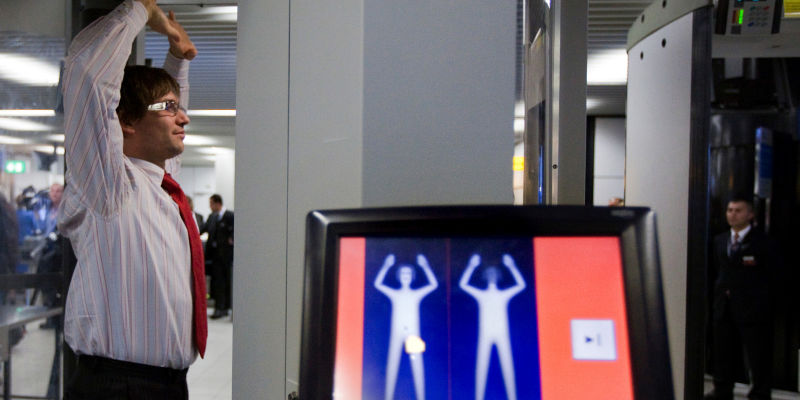TSA union chief blames security lines on Congress, wants to put taxpayers on the hook for thousands more screeners
06/06/2016 / By usafeaturesmedia

(BigGovernment.news) If there is one thing a union chief can be counted on doing, it is increasing the size of the union he represents. Normally that might be a good thing, but when the union represents government employees, then taxpayers are on the hook and that’s rarely a good thing.
So it is with American Federation of Government Employees president J. David Cox Sr., who is lambasting Congress because it refuses, so far, to double down on what really amounts to poor performance, not a lack of personnel.
As reported by AMI Newswire, Cox is imploring lawmakers to add 6,000 screeners to Transportation Security Administration rolls because he says that’s the only way to alleviate the massive lines at airport security checkpoints throughout the United States.
“This is not a complicated problem,” he said recently, in a statement. “Congress is avoiding the commonsense solution: Give TSA the resources it needs to hire enough screeners to meet passenger demand.”
Already, Congress has shifted an additional $34 million to the TSA’s budget to hire nearly 800 additional screeners, as well as fund overtime pay for existing workers. Much of that additional funding will be deployed to major airport hubs, where delays have caused some travelers to miss flights.
But Cox put the blame for delays on staffing cuts, citing Bureau of Transportation Statistics figures showing current TSA staffing levels at roughly 42,000 officers, down from 47,000 in 2013.
He said that, since 2013, “the volume of passengers has risen 15 percent, from 643 million to 740 million, and is projected to exceed 800 million this year.”
The agency has come under increasing criticism as the summer travel season gets underway, and delays show no signs of lessening. The TSA’s head of security, Kelly Hoggan, was removed from his post on Monday, but the agency’s problems have deeper roots.
In 2015, an internal investigation of TSA effectiveness in detecting threats at security checkpoints showed the agency failing to do so 95 percent of the time.
“The failures included failures in the technology, failures in TSA procedures, and human error,” John Roth, inspector general with the Department of Homeland Security, said.
In congressional testimony on TSA’s budget in March, new agency head Peter Neffenger said he would put a “strong emphasis on values, performance, customer service, and accountability.” He also said adding screeners would not solve the agency’s problems.![]()
“The fact is we cannot build a workforce indefinitely. We have a limited geographic footprint in every airport – some large, some small,” he added. “Only continuous innovation at the checkpoint will meet the challenges posed by passenger volume growth. Eventually, we will reach capacity, and in some places we already exceed capacity during peak travel periods.”
Union head Cox said screeners hate the delays as much as travelers, but reiterated that the only way to ease the wait times was to hire more staff. “[Delays are] bad for morale and makes a difficult job that much harder. Congress needs to do its job and give TSA the resources it needs to keep the public safe.”
Only, is this the most “commonsense solution?”
In an op-ed published on the CNN website Tuesday, Rep Darrell Issa (R-Calif.) wrote that privatizing airport security “might be a perfect solution to help the TSA do more, with less.”
Issa cites a 2011 report prepared for the House Transportation Committee that projected savings of up to $1 billion over five years if airport security was handed over to private firms.
Issa also cites the TSA’s Screening Partnership Program, under which private companies provide security screening at 22 airports, including the nation’s seventh busiest, San Francisco International.
According to the report, “if Federal screeners at each of the [34 largest airports with TSA screeners] were able to process the same number of passengers that private screeners screen at [San Francisco International], then 7,601 screeners could be cut from the Federal workforce.”
Issa writes that, while privatization isn’t a perfect solution, it may be able to “undo some of the problems passengers have faced and make the skies friendly once again.”
Nothing is ever “perfect,” but when certainly some systems are better than others.
We’ve tried the big government “solution” to an issue [again],and once more it is failing miserably. Why ask the American people to double down on stupid?
We get it that a union guy wants to expand his membership because that feathers his own next. But taxpayers are getting insulted twice every time they travel: Once when they are abused by an inefficient TSA, and again every April 15 when they have to pay to support that abuse. Enough already.
Normal Leahy of AMI Newswire contributed to this report.
More:
- Long, hot summer of travel: Neither the airlines nor the TSA are budging when it comes to addressing security lines
- Incompetent EPA has a slush fund in the billions of dollars it uses, in part, to build a paramilitary force
- Groups opposed to Obama’s new job-killing overtime mandates ask Congress to block them
BigGovernment.news is part of the USA Features Media network. Check out all of our daily headlines here.
Tagged Under: airport security, inefficiency, privatization, TSA





















